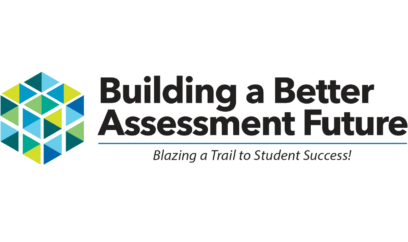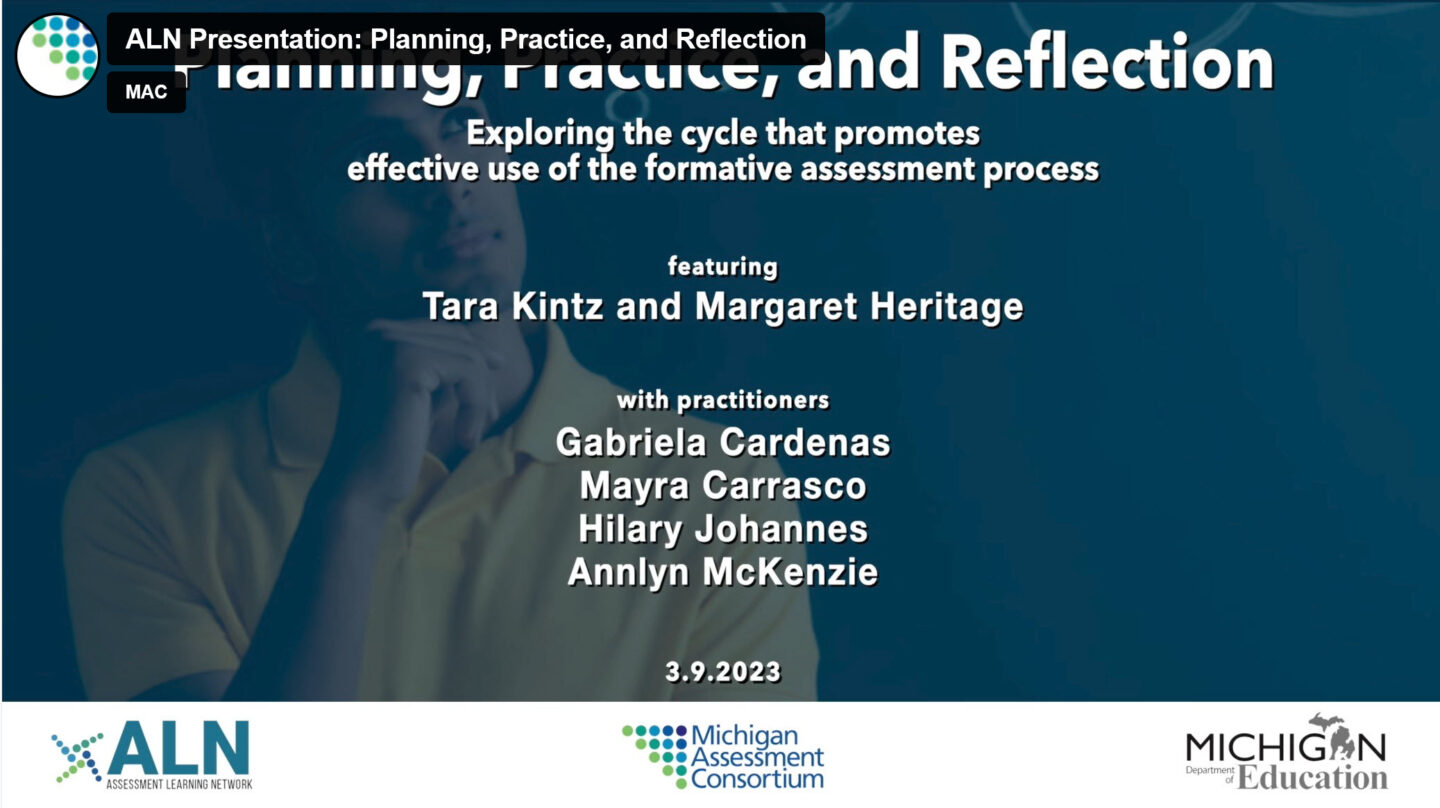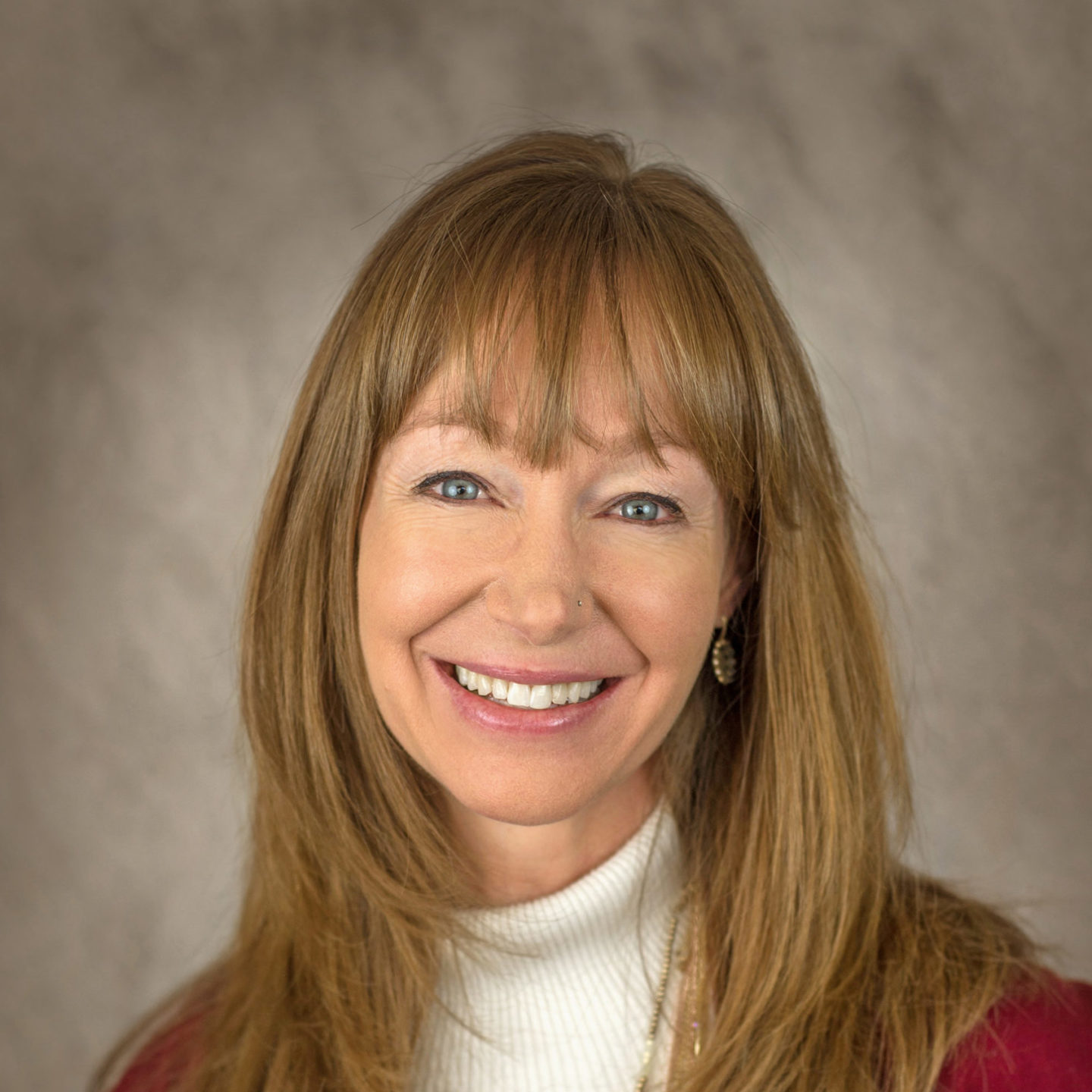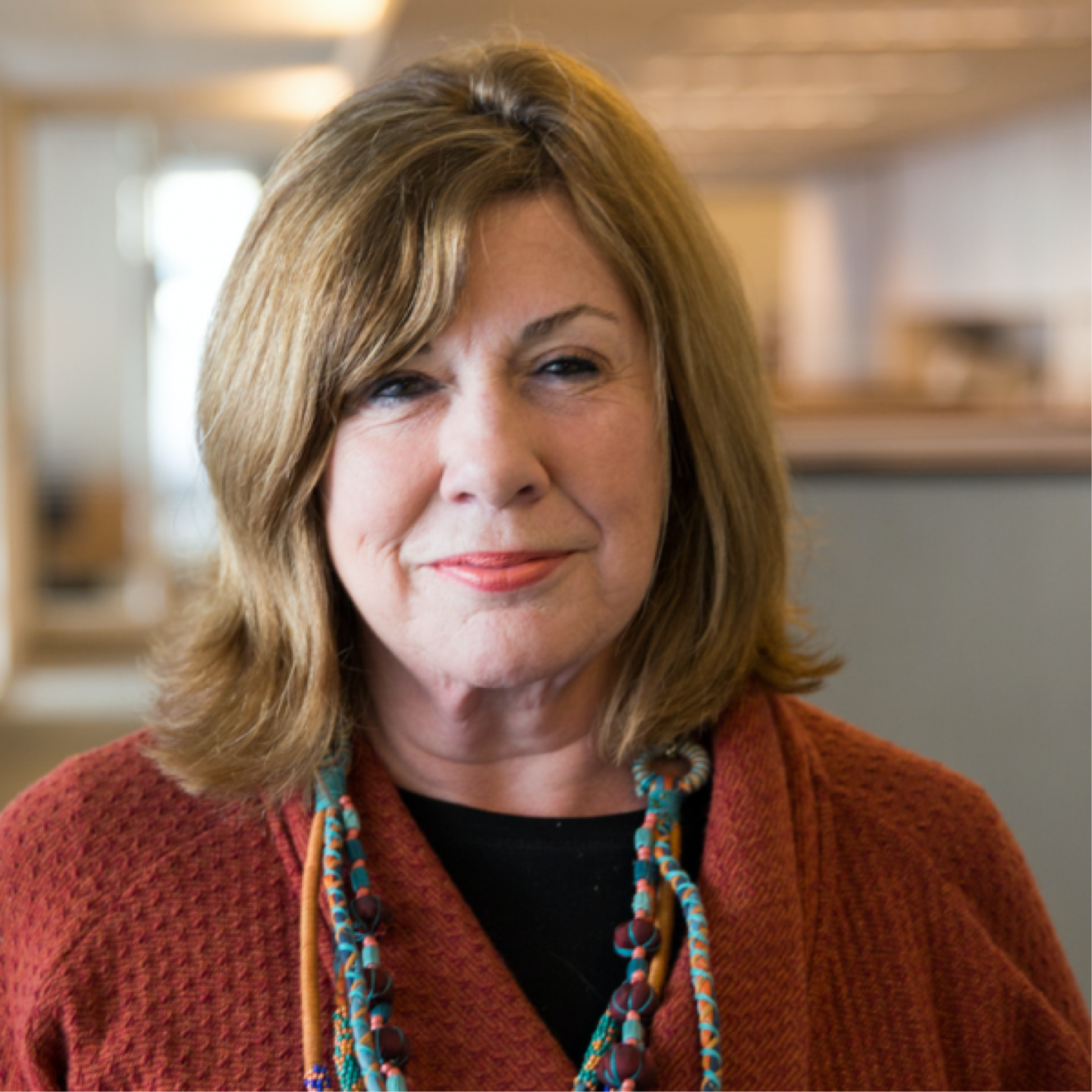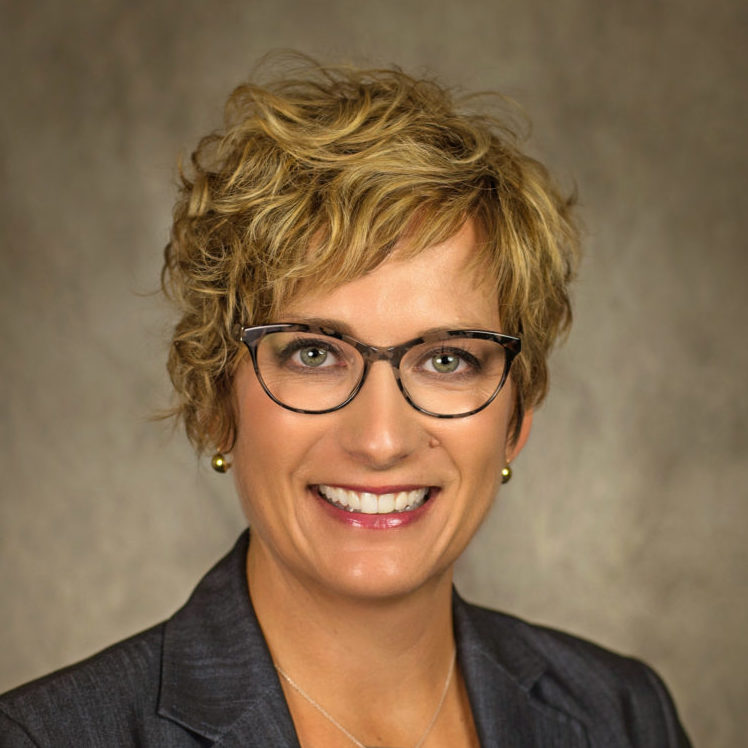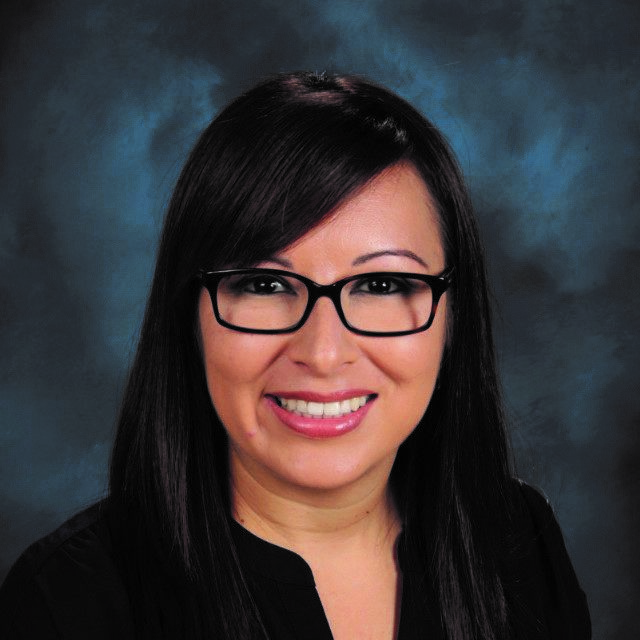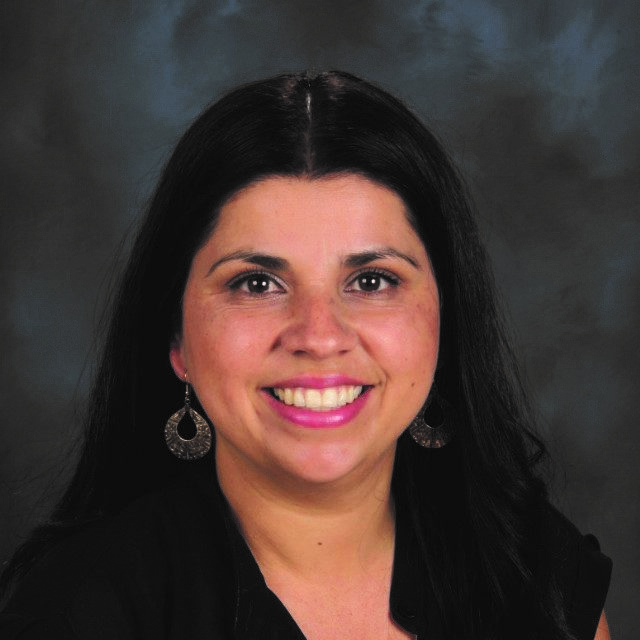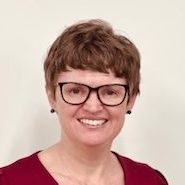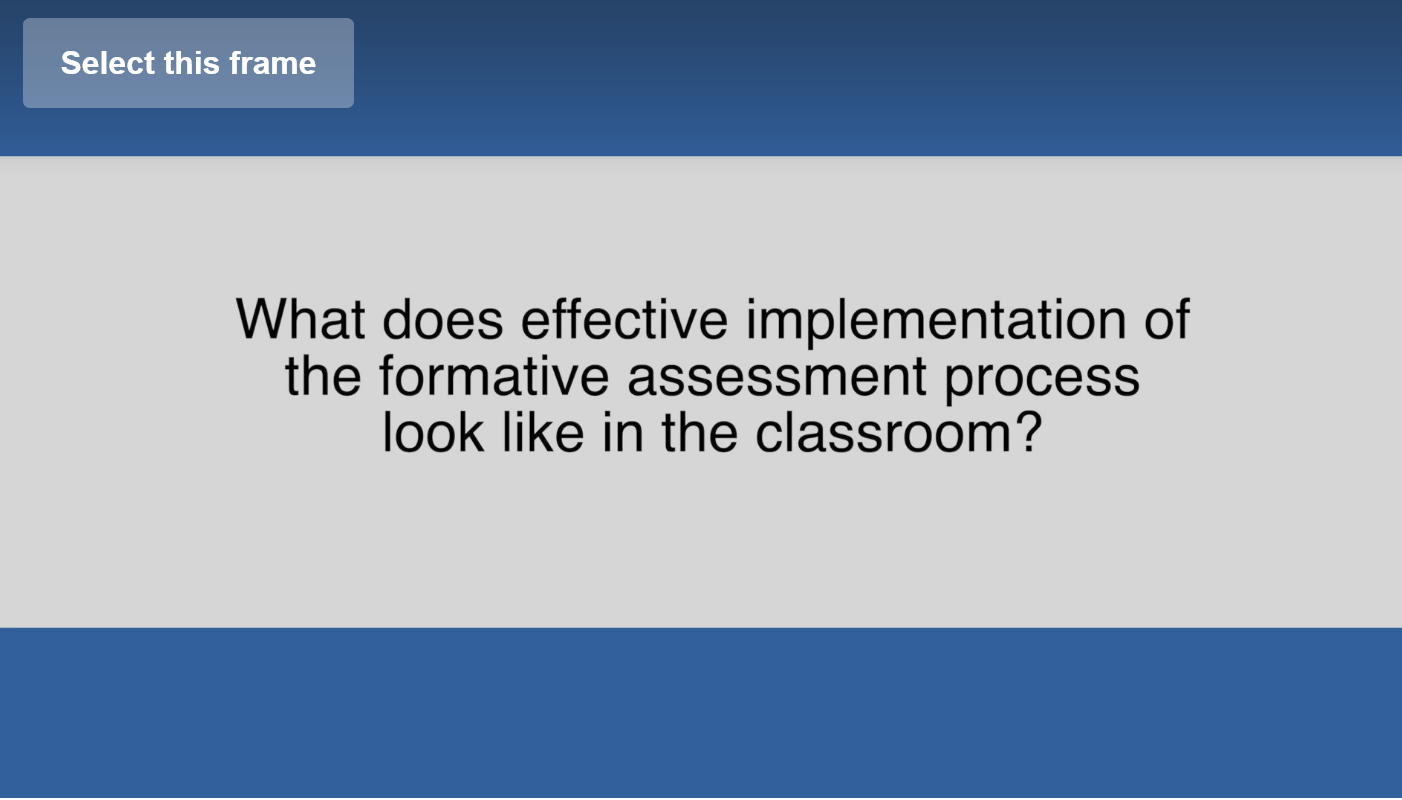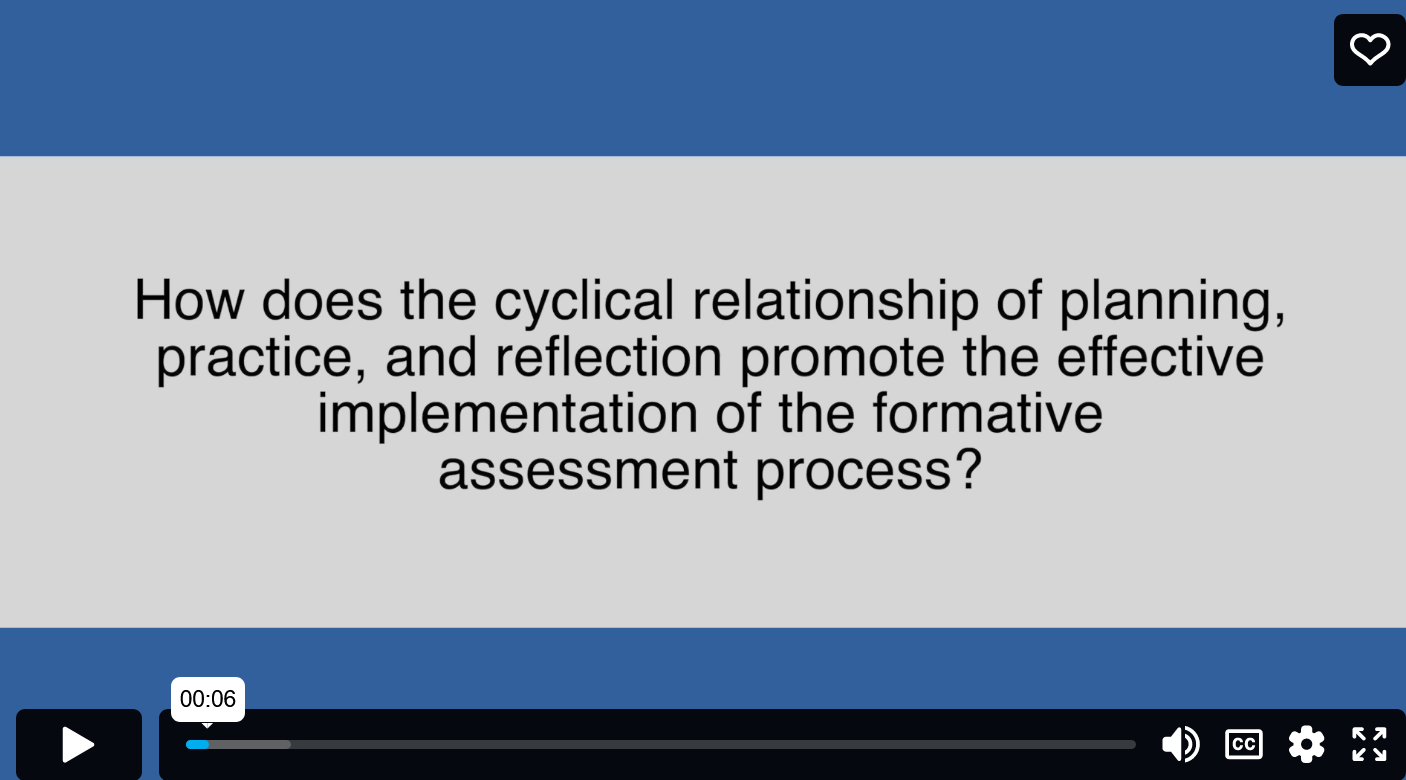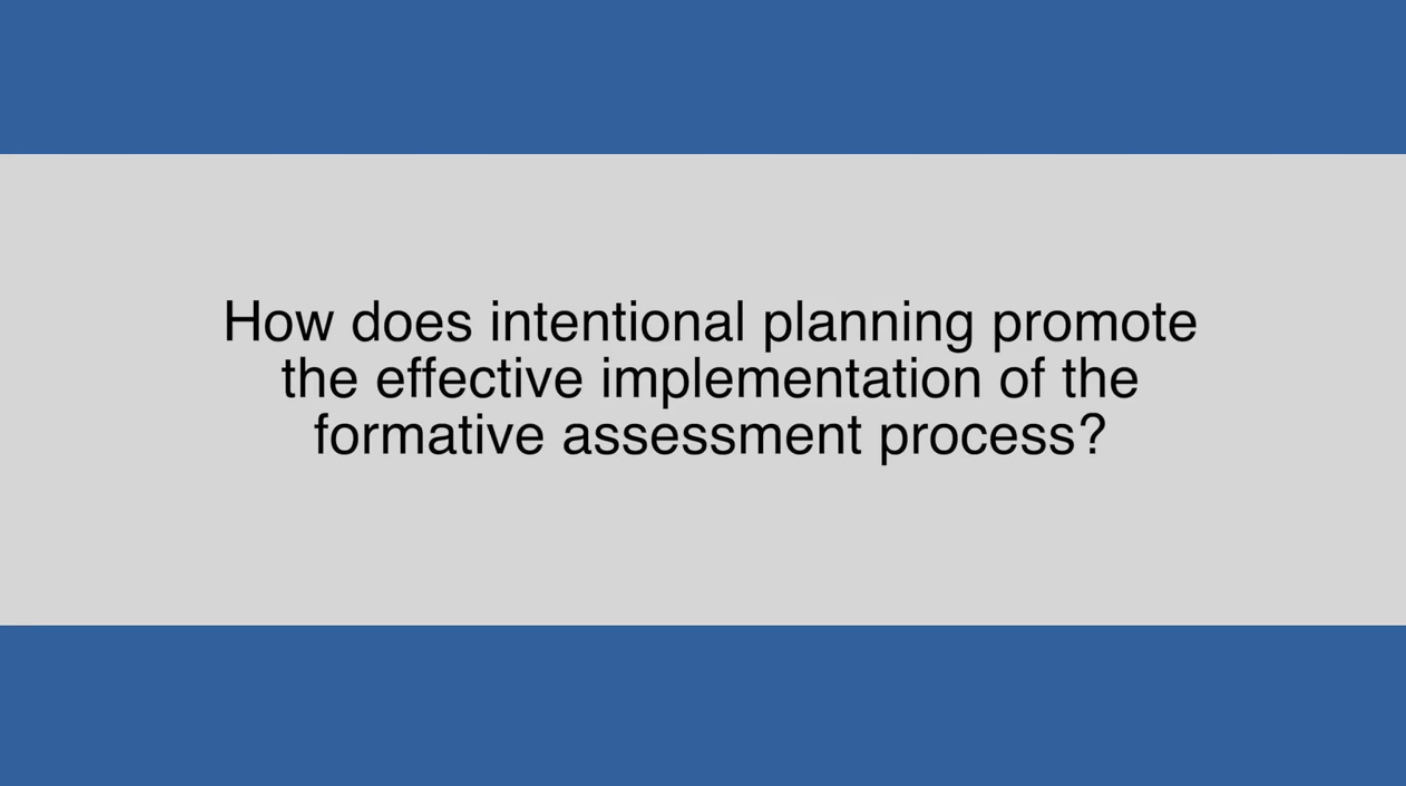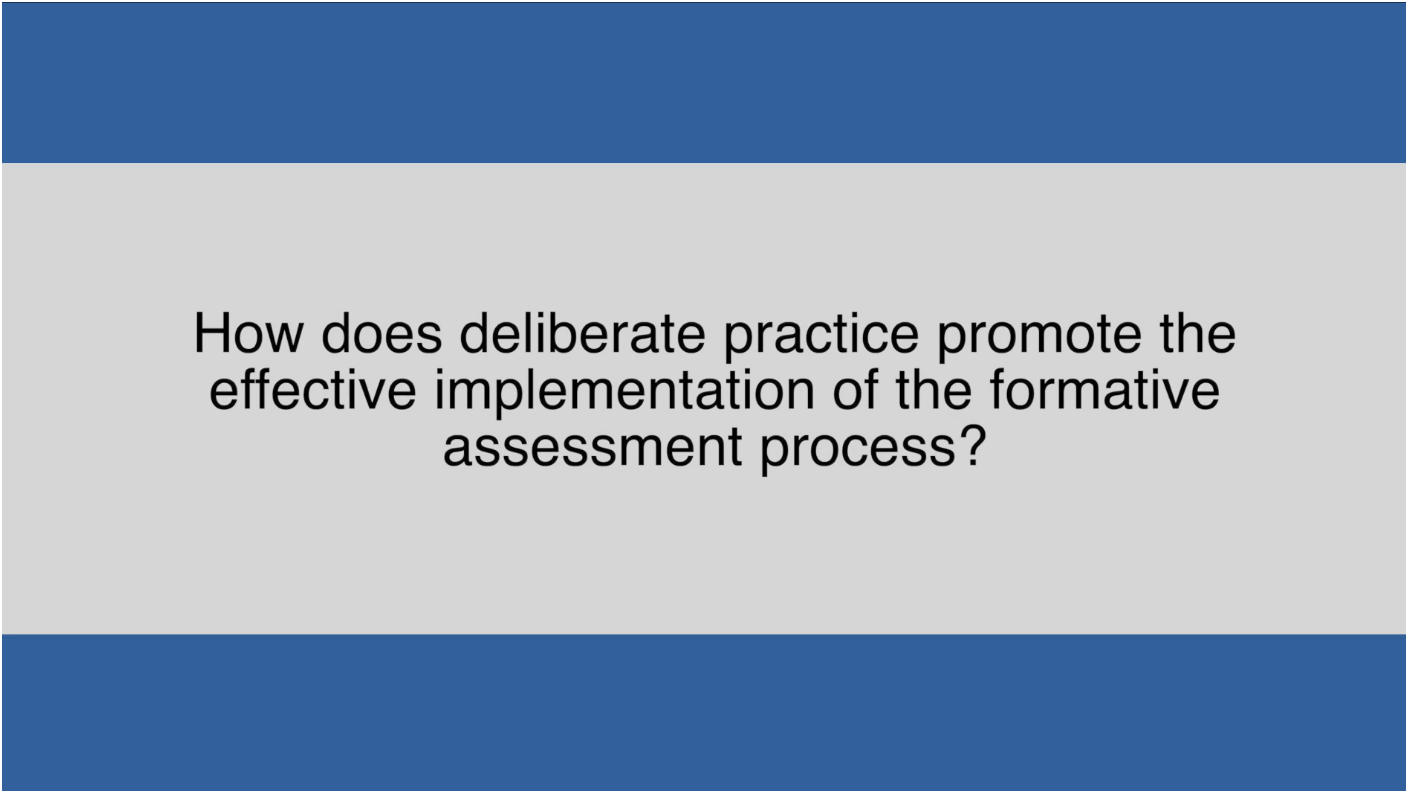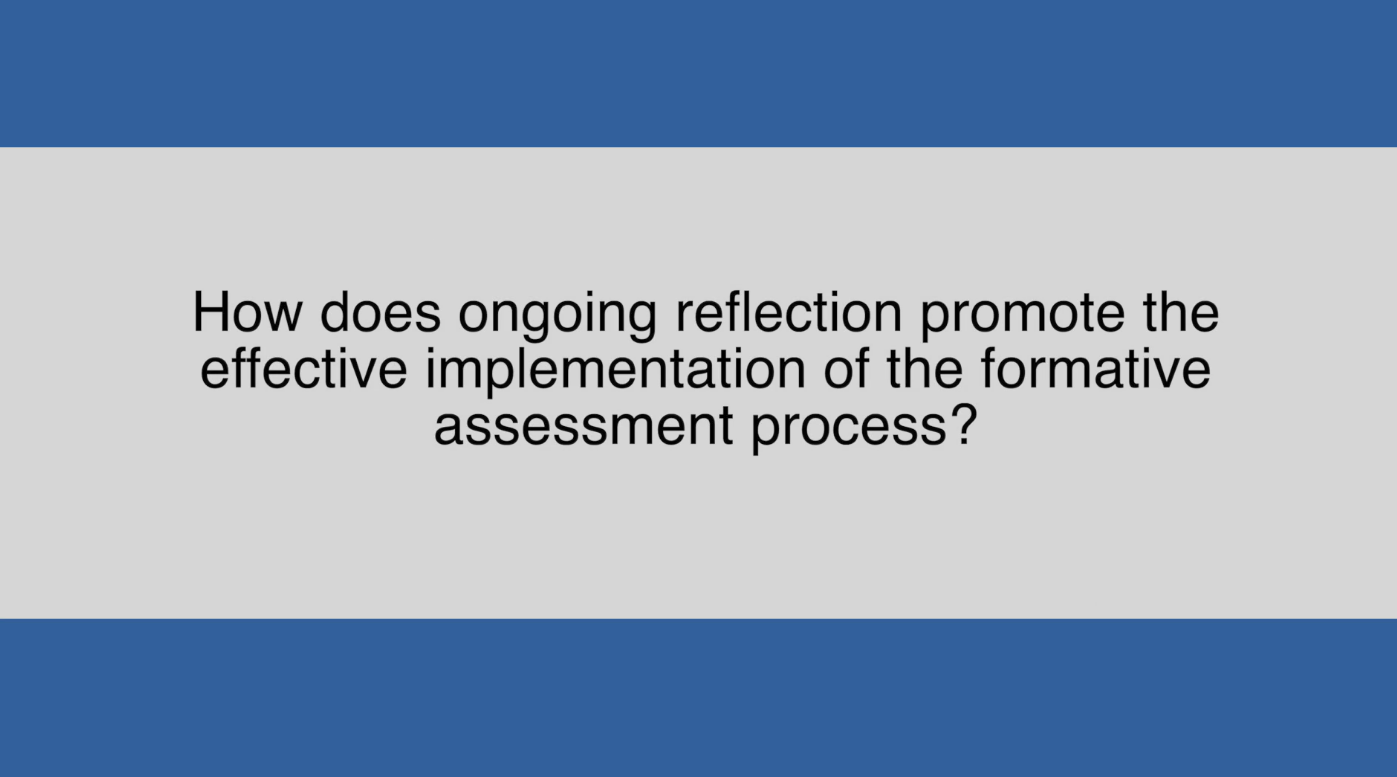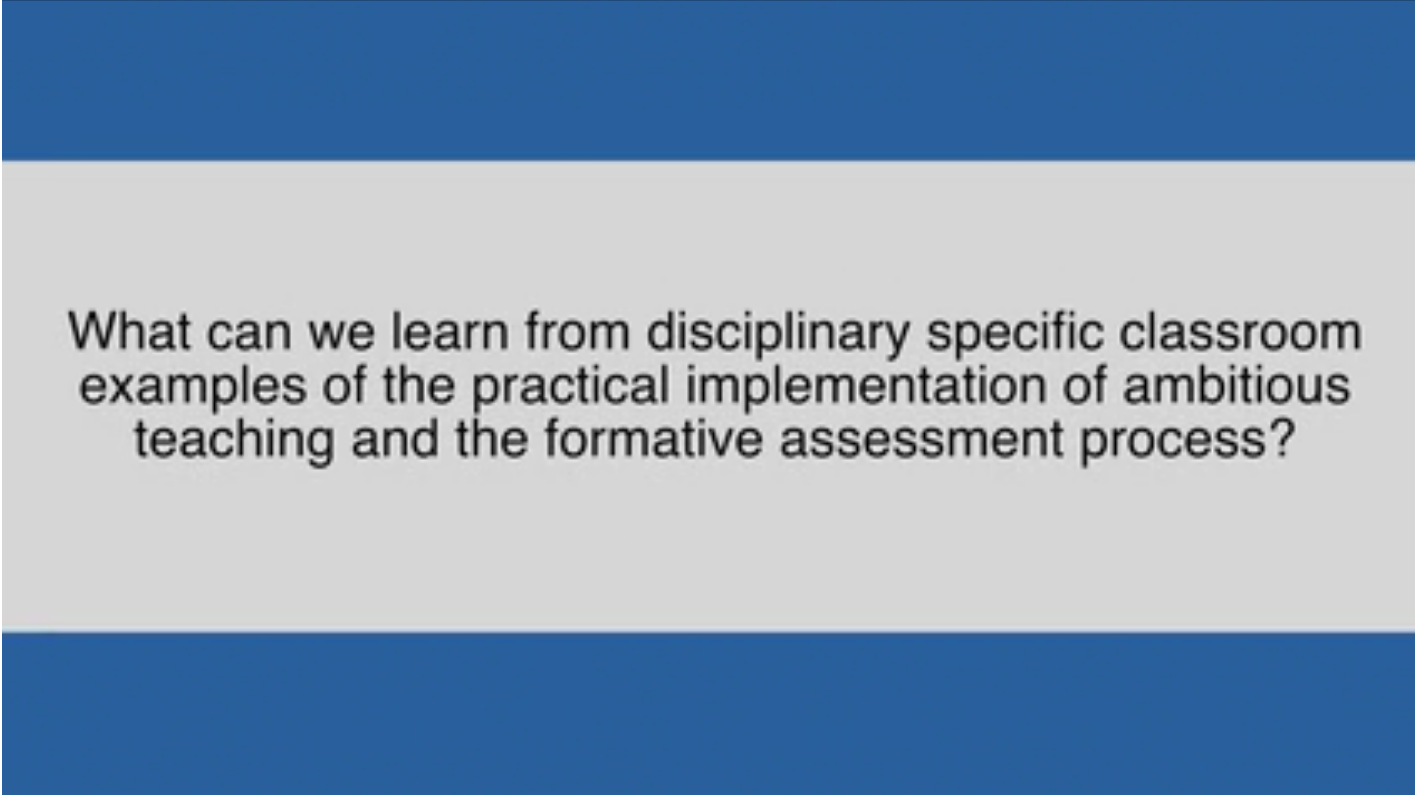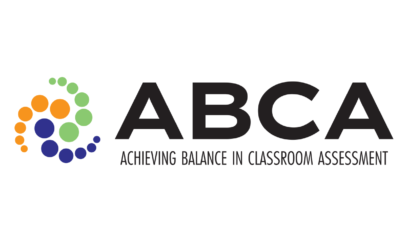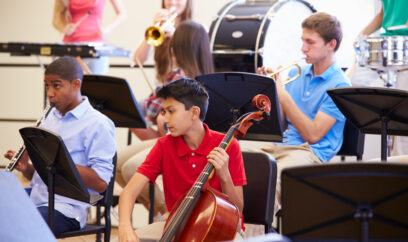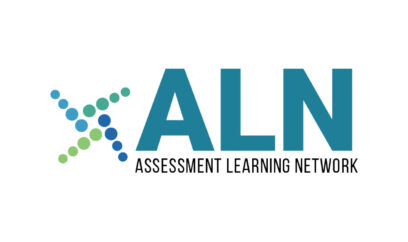When implemented effectively, the formative assessment process has the potential to double the rate of student learning (e.g., Wiliam, 2007). While there is increasing agreement on the benefit of the formative assessment process, further clarity is needed on what effective implementation of the formative assessment process looks like in the classroom and how to best support educators as they develop and deepen their practice.
In this ALN session, we will explore the cyclical relationship of planning, practice, and reflection as teachers learn about and implement the formative assessment process. Specifically, we will present intentional approaches to planning for the formative assessment process in the disciplines, the key to deliberate practice to enhance instruction, and approaches to reflection based on individual and collective inquiry. This session will also include practical examples from the classroom and connections to ambitious teaching to support educators in realizing the promise and potential of enhanced student learning outcomes through the enactment of the formative assessment process. Assessment experts and consultants, supplemented with educators and student perspectives, will come together to share key practices and mindsets that enhance teacher learning and promote student ownership.
Framing Questions
- What does effective implementation of the formative assessment process look like in the classroom?
- How does the cyclical relationship of planning, practice, and reflection promote the effective implementation of the formative assessment process?
- What can we learn from disciplinary specific classroom examples of the practical implementation of ambitious teaching and the formative assessment process?
Event Resources
Presentation Video
ALN Presentation: Planning, Practice, and Reflection. To view and access chapters, open the video via Vimeo at https://vimeo.com/manage/videos/807967638/1ba6aac899.
Presenter: Tara Kintz
Tara Kintz, Ph.D., works as Research Associate for the Michigan Assessment Consortium on education initiatives to promote student-centered learning and assessment literacy. Tara has a background of over 25 years working in education as a teacher, instructional coach, administrator, facilitator of professional development, and researcher. Kintz’s work focuses on balanced assessment, social contexts of teaching and learning, student engagement, educational leadership, and professional learning to promote equity in schools. She is currently working on research and the development of resources to give educators the tools they need to effectively implement the formative assessment process.
Presenter: Margaret Heritage
Margaret Heritage is an independent consultant in education. For her entire career, her work has spanned both research and practice. In addition to spending many years in her native England as a practitioner, a university lecturer, and an inspector of schools, she had an extensive period at UCLA, first as principal of the laboratory school of the Graduate School of Education and Information Students and then as an Assistant Director at the National Center for Research on Evaluation, Standards and Student Testing. She also served as Senior Scientist at WestEd. Her current work centers on formative assessment, including how formative assessment supports regulatory processes and contributes to educational equity goals.
Presenter: Annlyn McKenzie
Annlyn McKenzie began her career in the classroom as a secondary English teacher, and is currently the curriculum coordinator at the Career Tech Center in Muskegon. She is also a Lead Coach for the Michigan Department of Education’s FAME program, (Formative Assessment for Michigan Educators). She has found nothing more important or satisfying than to be part of a project that not only supports the growth of teachers to be intentional practitioners but also empowers students to be in control of their own learning. For the past two years, Annlyn has co-facilitated the Building Understanding of the Formative Assessment Process Series. The professional learning, under the direction of Margaret Heritage, supports FAME coaches who would like additional formative assessment process knowledge.
Presenter: Gabriela Cardenas
Gabriela Cardenas is a teacher at Para Los Niños Charter Elementary School, Los Angeles, with 19 years of experience with dual- language programs and English Learners, including an extended period at UCLA's laboratory school. She is the 2016 recipient of the Presidential Award for Excellence in Mathematics and Science Teaching. Gabriela has made numerous presentations on ambitious teaching and formative assessment in the U.S. and has conducted several workshops in Chile for teachers and administrators.
Presenter: Mayra Carrasco
Mayra Carrasco is a teacher at Para Los Niños Charter Elementary School, Los Angeles, with 19 years of experience, including an extended period at UCLA's laboratory school. She has a passion for fostering creativity and critical thinking in students. She holds a Master's degree in Education specializing in curriculum and instruction.
Presenter: Hilary Johannes
Hilary Johannes has 24 years of experience as a classroom teacher. She currently teaches a combination of Honors English 9 and Honors World History at Hamilton High School in the Chandler Unified School District in Chandler, Arizona. Johannes has been focusing on formative assessment and student agency in her classroom and has had the pleasure of presenting this work at professional learning conferences in Arizona. Her work has also been featured in two publications: Self-Regulation in Learning—The Role of Language and Formative Assessment by Alison L. Bailey and Margaret Heritage and Formative Assessment in the Disciplines—Framing a Continuum of Professional Learning by Margaret Heritage and E. Caroline Wylie.
